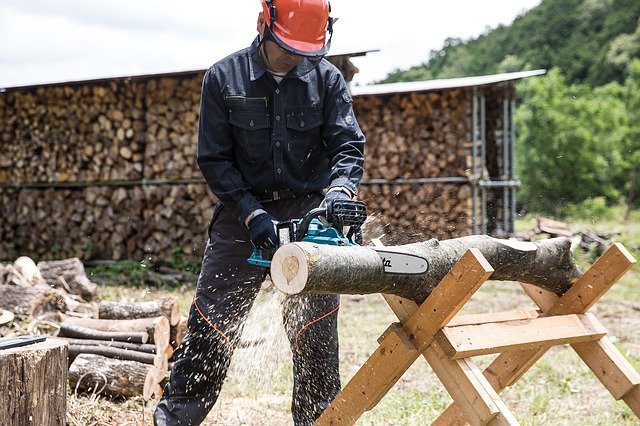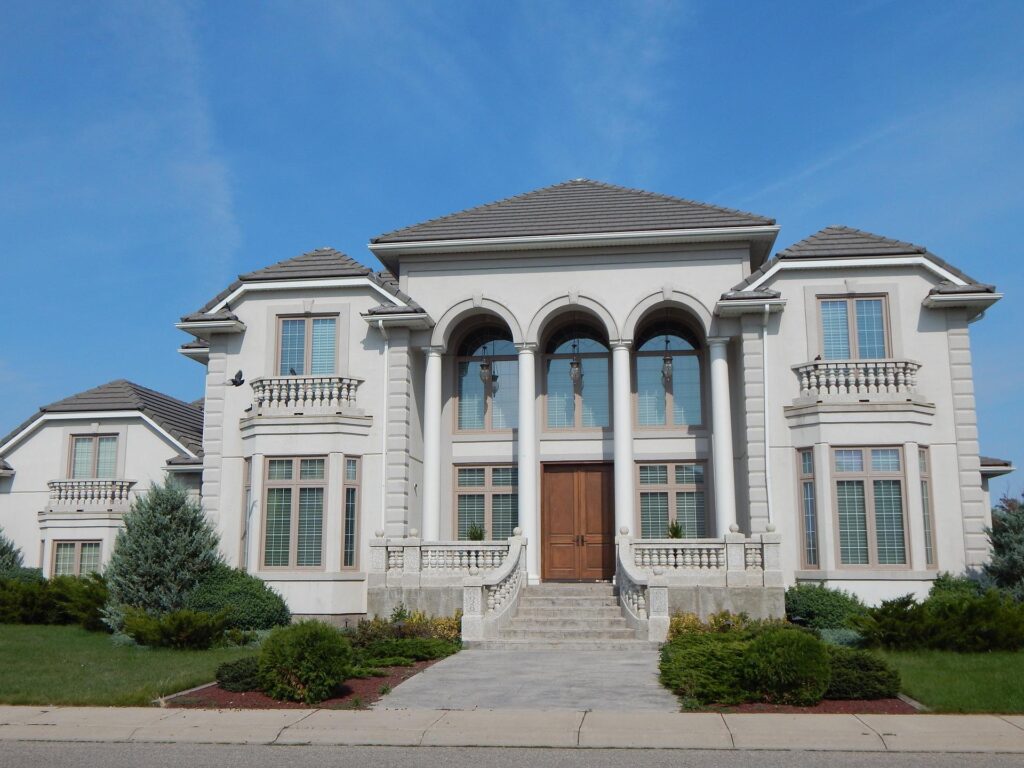
For most people who own a home, the home is likely their largest, and most valuable asset. If you purchased a home while you were young, and then paid off the home over time, then the home has likely appreciated in value, and your home is worth quite a bit. When it comes time to pass the house on to your children, you want to pass along the home, or the value of the home, as quickly and easily as possible.
You can transfer your house to your children through a will or trust. You can also use a beneficiary’s deed. Each approach works, but in different ways, and there are advantages and disadvantages to each approach. The options available are discussed below.
You Can Give Your House Away After You Die by Using a Will
 A will is one of the foundational documents of an estate plan, and it gives away assets when you die. You can designate someone to receive your house in a will. You don’t need to designate just one person, as you can split a house between several different people. In my family there are four children, so my parents’ house will be split between the four of us children. We will each get ¼ of the house. We will likely sell the house and split up the proceeds from the sale of the house, but if we wanted to make national news, we could take chainsaws to the house and cut it up into 4 pieces.
A will is one of the foundational documents of an estate plan, and it gives away assets when you die. You can designate someone to receive your house in a will. You don’t need to designate just one person, as you can split a house between several different people. In my family there are four children, so my parents’ house will be split between the four of us children. We will each get ¼ of the house. We will likely sell the house and split up the proceeds from the sale of the house, but if we wanted to make national news, we could take chainsaws to the house and cut it up into 4 pieces.
I think that may have a detrimental effect on the value of the house, but it could be fun! I think we will probably just sell the house, since we kids have our own places to live at this point.
If you transfer a house through a will, then the will will need to go through the probate process in Colorado. If real estate is part of what a will is giving away, then probate through the courts will be required in Colorado. You can use a personal representative’s deed to transfer ownership of the house to someone new, which is a deed that allows the personal representative of an estate to transfer ownership of a house instead of needing to have the deceased person try to transfer ownership. Since a deceased person cannot sign their name to transfer property, the personal representative needs to act on behalf of the deceased person, and the personal representative gets legal authority to act on behalf of the deceased person from the probate court.
You Can Give Your House Away After You Die by Using a Beneficiary’s Deed
 A beneficiary’s deed is essentially a transfer on death deed, at least in Colorado. Under Colorado law, if you create a beneficiary’s deed, you can name who should receive your house after you die on the beneficiary’s deed. Not every state has a beneficiary’s deed, so you need to check your own state’s laws to see what might be available to you. The beneficiary’s deed needs to be recorded with the county where the house is located before you pass away. When you do pass away, the named beneficiaries can bring the county clerk and recorder a copy of your death certificate and an affidavit to tie the name on the death certificate to the name on the beneficiary’s deed. The property will then transfer to the named beneficiaries at the county clerk and recorder level, so the transfer does not need to happen through probate, either.
A beneficiary’s deed is essentially a transfer on death deed, at least in Colorado. Under Colorado law, if you create a beneficiary’s deed, you can name who should receive your house after you die on the beneficiary’s deed. Not every state has a beneficiary’s deed, so you need to check your own state’s laws to see what might be available to you. The beneficiary’s deed needs to be recorded with the county where the house is located before you pass away. When you do pass away, the named beneficiaries can bring the county clerk and recorder a copy of your death certificate and an affidavit to tie the name on the death certificate to the name on the beneficiary’s deed. The property will then transfer to the named beneficiaries at the county clerk and recorder level, so the transfer does not need to happen through probate, either.
However, a beneficiary’s deed is only tied to the one piece of real estate, so if you move you would need to do a new beneficiary’s deed for the new house. If you have more than one piece of real estate that you own, you will need to have a beneficiary’s deed for every piece of property. A beneficiary’s deed transfers ownership at your death, and does so quickly and easily, but it also helps keep taxes due low when a house is sold.
If you have more than one piece of real estate, you would need a beneficiary’s deed for each property. You can have both a beneficiary’s deed and a will, but if you have more than one property, you may be better served by setting up a trust.
You Can Give Your House Away After You Die by Using a Trust
 Instead of just using a will, or a beneficiary’s deed in combination with a will, you can give your house away by using a trust, but only if you put your house into the trust before you pass away. A trust can only control what happens to property owned by the trust. So, if you create a trust, you can re-title your house in the name of the trust, and then the trust agreement dictates what happens to the house. The house can still be given to one person, or a group of people, but the transfer happens through the trust and not through the probate process. Such a transfer happens outside of probate, and assets inside a trust do not need to go through probate.
Instead of just using a will, or a beneficiary’s deed in combination with a will, you can give your house away by using a trust, but only if you put your house into the trust before you pass away. A trust can only control what happens to property owned by the trust. So, if you create a trust, you can re-title your house in the name of the trust, and then the trust agreement dictates what happens to the house. The house can still be given to one person, or a group of people, but the transfer happens through the trust and not through the probate process. Such a transfer happens outside of probate, and assets inside a trust do not need to go through probate.
Instead, the transfer from a trust happens as a private transaction. The trust names a successor trustee, who can take over the trust when you die and transfer assets to the named beneficiaries of the trust. The trust process does not need to involve the courts, meaning the transfer can be quicker and easier than trying to keep track of multiple beneficiary’s deeds. You would only have one trust, instead of many beneficiary’s deeds. However, setting up a trust usually takes more work on the front end, so a trust may cost more to set up than just a will. The time savings on the back end may be worth the extra money, or may make life easier on children or other survivors, but you need to consider the cost of a trust against the benefit to decide what is best for you.
*Bonus Section* You Always Need to Watch Out for Taxes
 When you sell a house, you pay tax on the difference between what you sell it for (called sales price) and what you paid for the house, or put into the house in additional work or repairs to a house (called cost-basis). If someone is given a house as a gift, they get “carry-over basis” or the cost of the house is what the giver originally paid for the house. If someone inherits a property, then they take the property with what is called “stepped-up basis,” which is the full fair market value of the house when the person dies. If someone has lived in a house for a long time, then the “stepped-up basis” can mean saving taxes on several hundred thousand dollars, or even more, when the house is sold after you die. This is true if a house is transferred using a will, trust, or beneficiary’s deed.
When you sell a house, you pay tax on the difference between what you sell it for (called sales price) and what you paid for the house, or put into the house in additional work or repairs to a house (called cost-basis). If someone is given a house as a gift, they get “carry-over basis” or the cost of the house is what the giver originally paid for the house. If someone inherits a property, then they take the property with what is called “stepped-up basis,” which is the full fair market value of the house when the person dies. If someone has lived in a house for a long time, then the “stepped-up basis” can mean saving taxes on several hundred thousand dollars, or even more, when the house is sold after you die. This is true if a house is transferred using a will, trust, or beneficiary’s deed.
I have lots of people who just want to add their children’s’ names onto the title of a property. While setting up the children as joint owners, or joint tenants, on a property will transfer ownership to the children without the need to go through probate, it will not get the children the “stepped-up basis,” but only the carry-over basis, so there may be lots of tax due.
For instance, if you bought your house for $100,000 in the 1980s and you die now, with your house worth $500,000, and your kids get carry-over basis only, they would need to pay capital gains tax on the $400,000 gain, which would be $80,000 in tax under the current tax laws. That may be a big enough cost that this is not the best approach for you, as that is a lot to pay in tax!
You Want to Choose the Approach That Makes the Most Sense for You
No single approach is the best approach for everyone. You may want to just use a will because using a will is the simplest and least expensive option. You may want to just use a will because your children can handle probate, and you want to let them. You may want to use a trust for reasons other than just to avoid probate, or you may just want to use a trust to avoid probate. You may want to use a beneficiary’s deed in conjunction with a will to make life simple for your kids after you die, but also to minimize taxes. Any approach will work, but you want to choose what is right for you and your situation. You can discuss your situation with an experienced estate planning attorney who can help you understand your options and pick which one is right for you. To make an appointment to talk to an experienced estate planning attorney, go here.

 720-730-7274
720-730-7274






